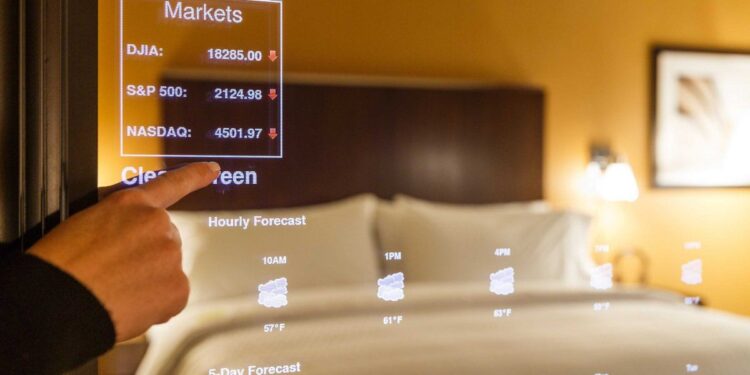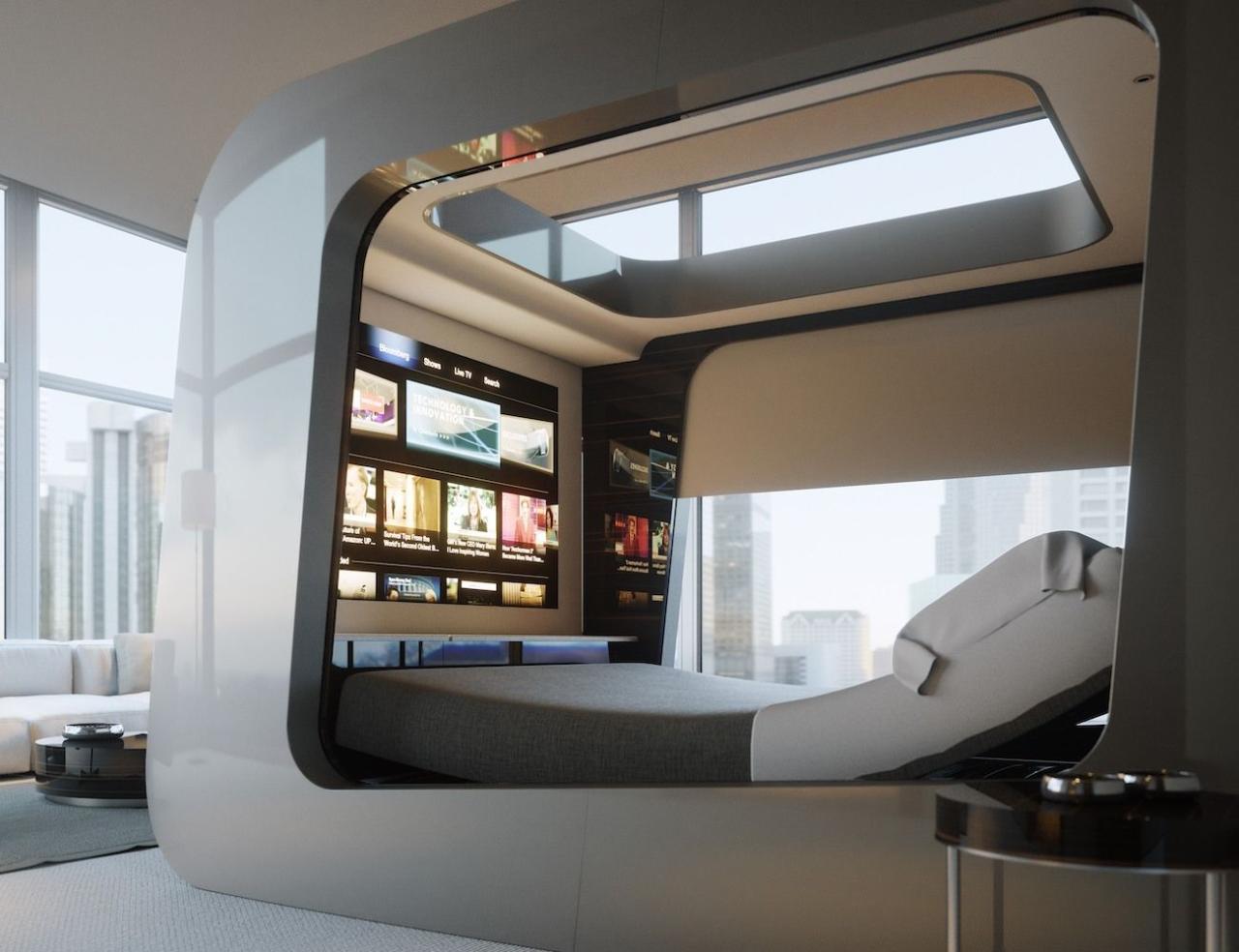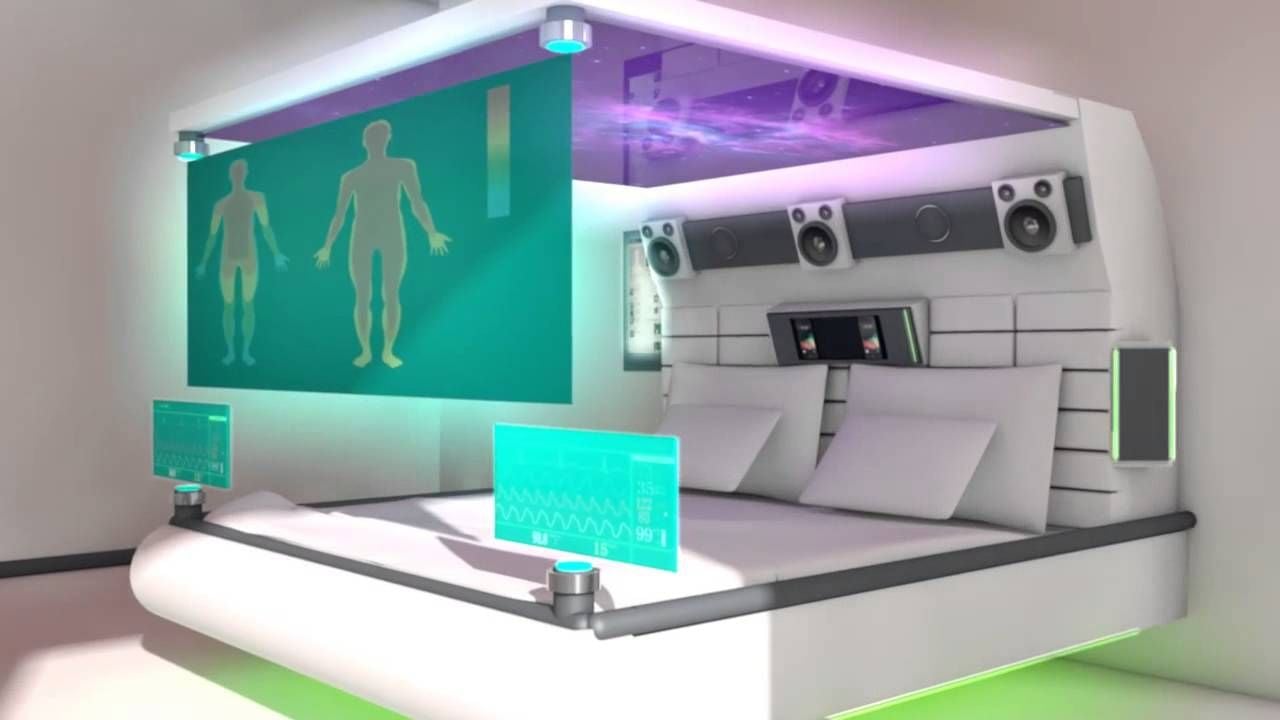Smart Hotels: The Future of Hospitality
The landscape of modern hospitality is experiencing a revolutionary shift, driven primarily by the relentless march of technological innovation. What once defined a comfortable hotel stay – a clean room and friendly service – is now evolving into something far more sophisticated, intuitive, and seamlessly integrated with our digital lives. Guests are no longer simply seeking a place to sleep; they demand an intelligent, personalized, and efficient experience that anticipates their needs and enhances every moment of their journey. This comprehensive exploration delves into the burgeoning trends shaping the future of tech-smart hotels, offering deep insights into how these advancements are redefining guest comfort, operational efficiency, and the very essence of modern lodging. We will examine the forces driving this transformation, the cutting-edge technologies being deployed, and the critical balance between digital convenience and the enduring human touch.
The Digital Transformation of the Guest Journey
The entire guest journey, from the initial booking to post-stay feedback, is being profoundly impacted by technological advancements. Hotels are leveraging digital tools to create a seamless, stress-free, and highly personalized experience, moving far beyond traditional interactions.
A. Seamless Pre-Arrival and Booking Experience
The guest’s digital experience often begins long before they even step foot into the hotel lobby. Tech-smart hotels are investing heavily in platforms that streamline the research, booking, and pre-arrival process, setting the stage for a smooth stay.
- Intuitive Online Booking Platforms: These platforms go beyond basic room reservations. They offer detailed virtual tours of rooms and amenities, allow for customization of preferences (e.g., pillow type, room temperature pre-sets), and provide dynamic pricing based on real-time demand and guest loyalty. High-resolution photos and even 3D renderings help travelers visualize their stay.
- AI-Powered Chatbots and Virtual Assistants: Available 24/7 on hotel websites and social media, these intelligent chatbots can answer frequently asked questions about amenities, local attractions, booking policies, and even provide personalized recommendations based on past inquiries or expressed interests. This instant support frees up human staff for more complex interactions.
- Personalized Pre-Arrival Communications: Leveraging guest data, hotels can send tailored emails or app notifications. These might include early check-in offers, upgrades, information about upcoming events at the hotel or in the local area, or even a personalized welcome message from the general manager. This proactive communication builds anticipation and enhances the sense of being valued.
- Digital Check-in and Mobile Key Technology: Guests can complete check-in procedures via a hotel app on their smartphone, bypassing the front desk entirely. Upon arrival, their smartphone becomes their room key, using NFC (Near Field Communication) or Bluetooth technology, allowing direct access to their room and other hotel facilities. This not only saves time but also provides a sense of autonomy and security.
B. In-Room Technology: Elevating Comfort and Control
Once inside their rooms, guests are met with a suite of sophisticated technologies designed to enhance comfort, convenience, and personalization. The room itself transforms into an intelligent hub, responsive to the guest’s every need.
- Smart Room Controls: Centralized digital panels or voice-activated assistants (like Amazon Echo or Google Home) allow guests to control lighting scenes, room temperature, blinds/curtains, and even entertainment systems with simple commands. This creates a highly customized and intuitive environment tailored to individual preferences.
- Personalized Entertainment Systems: Beyond traditional cable, smart TVs offer seamless integration with streaming services (Netflix, Hulu, Disney+), allowing guests to log in to their own accounts. Some systems even remember guest preferences for future stays. High-quality sound systems and interactive content menus further enhance the in-room entertainment experience.
- Intelligent Lighting and Ambiance: Lighting systems can adapt based on the time of day, guest activity, or even mood. Imagine waking up to a simulated sunrise or selecting a “relax” mode that dims lights and plays soothing music. These systems contribute to a holistic well-being experience.
- Connected Minibars and Smart Sensors: Minibars are becoming “smart,” automatically tracking consumption and alerting staff for restocking, eliminating manual checks and billing errors. Occupancy sensors can manage energy consumption, turning off lights and adjusting climate control when a room is vacant, contributing to sustainability efforts.
- Robotics for Room Service and Deliveries: While still emerging, some innovative hotels are deploying robots for delivering amenities like fresh towels, forgotten toiletries, or even small room service orders. These robots navigate independently, enhancing efficiency and offering a novel guest experience.
C. Enhanced Connectivity and Communication
Seamless and robust connectivity is the backbone of the tech-smart hotel experience. Guests expect reliable, high-speed internet access everywhere, along with convenient ways to communicate with hotel staff.
- High-Speed Wi-Fi 6 and Beyond: Guests expect lightning-fast, secure Wi-Fi that supports multiple devices for work, streaming, and communication. Hotels are investing in the latest Wi-Fi standards to ensure uninterrupted connectivity throughout the property.
- Dedicated Guest Apps: These proprietary apps serve as a central hub for guests. They can be used for mobile check-in/out, mobile key, ordering room service, booking spa appointments, requesting concierge services, viewing bills, and even communicating directly with staff via chat functions.
- Voice-Activated Guest Services: Integrating AI assistants allows guests to make requests simply by speaking. “Order me a coffee,” “Schedule a wake-up call,” or “What time is the gym open?” can be handled instantly, improving responsiveness and convenience.
- Interactive Digital Signage: In lobbies and common areas, large digital displays provide real-time information on hotel events, local weather, transportation schedules, and promotions. Some are interactive touchscreens allowing guests to explore local attractions or book tours.
Operational Excellence Driven by Technology
Beyond enhancing the guest experience, technology is profoundly revolutionizing hotel operations, leading to unprecedented levels of efficiency, cost savings, and personalized service delivery. This behind-the-scenes transformation is critical for profitability and sustained success.
A. Back-of-House Automation and AI Integration
Many of the most impactful technological advancements occur behind the scenes, optimizing core hotel functions and allowing staff to focus more on direct guest interaction.
- Automated Housekeeping and Predictive Maintenance: AI algorithms can predict when rooms will be vacant for cleaning, optimize housekeeping routes, and even predict maintenance needs based on sensor data from HVAC systems or appliances. This proactive approach minimizes downtime and extends equipment life.
- Robotics in Service Areas: While guest-facing robots are eye-catching, more common are robots in laundry facilities, kitchens, or for material handling, automating repetitive tasks, improving efficiency, and addressing labor shortages.
- Advanced Property Management Systems (PMS): The heart of hotel operations, modern PMS are cloud-based and integrate with various other systems (POS, CRM, booking engines). They provide real-time data on occupancy, revenue, guest profiles, and operational metrics, enabling dynamic decision-making.
- Revenue Management Systems (RMS): Powered by sophisticated algorithms, RMS analyze vast amounts of data (historical booking patterns, competitor pricing, local events, weather) to dynamically adjust room rates in real-time. This maximizes revenue by optimizing pricing strategies for different demand levels.
B. Data Analytics and Personalization at Scale
The ability to collect, analyze, and leverage vast amounts of guest data is a cornerstone of the tech-smart hotel. This data fuels unprecedented levels of personalization and operational intelligence.
- Guest Data Platforms (CDP): Hotels are implementing Customer Data Platforms to create a single, unified view of each guest. This consolidates data from bookings, loyalty programs, in-stay purchases, and app interactions, allowing for highly targeted marketing and personalized service.
- Predictive Analytics for Guest Needs: By analyzing past behaviors and preferences, hotels can predict future guest needs. For example, if a guest frequently orders room service late at night, the hotel might proactively offer a late-night menu upon their next check-in. This moves beyond reactive service to proactive anticipation.
- Targeted Marketing and Loyalty Programs: Data analytics allows hotels to segment their audience and deliver highly personalized marketing messages and exclusive offers. Loyalty programs are becoming more dynamic, offering rewards tailored to individual guest preferences, rather than generic points.
- Sentiment Analysis from Guest Feedback: AI-powered tools can analyze unstructured guest feedback from online reviews, surveys, and social media. This sentiment analysis helps hotels quickly identify areas for improvement, pinpoint recurring issues, and understand overall guest satisfaction trends.
C. Sustainability Through Smart Technology
Technology is a powerful enabler of sustainable practices within hotels, allowing them to reduce their environmental footprint while often simultaneously cutting operational costs.
- Energy Management Systems (EMS): These systems use sensors and AI to monitor and optimize energy consumption across the entire property. They can automatically adjust lighting, HVAC, and water heaters based on occupancy, outside weather, and peak demand, leading to significant energy savings.
- Smart Water Management: Technologies like low-flow fixtures, greywater recycling systems, and smart irrigation for landscaping help conserve water. Sensors can detect leaks early, preventing costly waste.
- Waste Management Optimization: Smart bins that compact waste and alert staff when full, coupled with data analytics on waste generation, help hotels reduce landfill waste and improve recycling efforts.
- Digitalization of Operations: Reducing reliance on paper for check-ins, menus, billing, and internal communications significantly lowers paper consumption and printing costs, contributing to a more sustainable operation.
The Human Element: Bridging the Digital Divide
While technology is undeniably transforming the hotel experience, it’s crucial to remember that hospitality remains fundamentally a human-centric industry. The most successful tech-smart hotels understand that technology should enhance, not replace, genuine human connection and empathetic service.
A. Empowering Staff with Technology
Technology isn’t just for guests; it’s a powerful tool to empower hotel staff, freeing them from mundane tasks and allowing them to focus on delivering truly personalized and memorable service.
- Mobile Staff Devices: Housekeeping, maintenance, and concierge teams are equipped with tablets or smartphones that provide real-time updates, guest preferences, and access to the PMS. This allows them to respond quickly to requests, check room status, and anticipate needs more effectively.
- Training in Tech Integration: Hotel staff receive comprehensive training not just on how to use new technologies, but on how to integrate them seamlessly into the guest experience. This ensures that the technology feels intuitive and supportive, rather than a barrier.
- Personalized Guest Recognition Tools: Front-line staff can access guest profiles that highlight preferences, past requests, and special occasions (e.g., birthdays, anniversaries). This allows them to offer personalized greetings, acknowledge loyalty, and anticipate needs, making each guest feel uniquely valued.
- AI for Task Automation, Not Job Replacement: Many repetitive, administrative tasks (like data entry, scheduling basic appointments, or answering simple queries) can be automated by AI, freeing up staff to engage in more meaningful, high-value interactions that require empathy, problem-solving, and personal connection.
B. Creating Authentic Human Touchpoints
Even with the most advanced technology, the warmth of human interaction remains a key differentiator in luxury hospitality. Tech-smart hotels strategically design their operations to preserve and enhance these moments.
- The “Human Concierge” Reimagined: While digital concierges handle routine requests, human concierges can focus on curating highly bespoke experiences, offering insider local knowledge, and building personal rapport with guests. Their role shifts from information provider to experience architect.
- Personalized Welcome and Farewell: Despite mobile check-in, many hotels ensure a human touchpoint upon arrival, perhaps a personalized greeting from a guest relations manager or a warm farewell from the front desk team, acknowledging the guest by name and wishing them safe travels.
- Empathetic Problem Solving: When issues arise, technology can identify them quickly, but it’s the empathetic, human response that truly resolves problems and turns a negative experience into a positive one. Staff are trained to listen, understand, and provide solutions with genuine care.
- Curated Local Interactions: Hotels can use technology to connect guests with local artisans, cultural events, or community projects, but the human element comes in facilitating these connections and ensuring they are authentic and enriching.
The Future: Seamless Integration and Hyper-Personalization
Looking ahead, the evolution of tech-smart hotels will be characterized by even deeper integration of disparate systems and an unprecedented focus on predicting and fulfilling individual guest desires, almost before they are consciously articulated.
A. The Internet of Things (IoT) Everywhere
The proliferation of IoT devices will transform hotel rooms and common areas into truly intelligent ecosystems. Everything from curtains and mirrors to coffee makers and personal climate zones will be interconnected and responsive.
- Predictive Room Preferences: Imagine a room that automatically adjusts temperature, lighting, and even ambient sounds based on your historical preferences, your current location (e.g., nearing the hotel), and even biometric data (e.g., smart wearable indicating sleep patterns).
- Smart Bathroom Experiences: Mirrors that display news and weather, showers that learn your preferred temperature, and toilets that offer health insights are already emerging. These will become more common, offering ultimate convenience and even health monitoring.
- Personalized Digital Art and Content: In-room screens could display personalized digital art, family photos uploaded by the guest, or relevant news feeds tailored to their interests, creating a truly unique and comforting environment.
B. Biometric Recognition and Seamless Access
Biometric technology, while raising privacy concerns that must be carefully addressed, offers the potential for incredibly seamless and secure guest experiences.
- Facial Recognition for Check-in and Access: Imagine walking into a hotel, having your face scanned for immediate check-in, and then simply walking to your room which automatically unlocks as you approach. This would eliminate keys and check-in desks entirely.
- Voice Biometrics for Secure Transactions: Authenticating payments or accessing personal data via voice recognition could add another layer of convenience and security for in-hotel purchases.
C. The Metaverse and Virtual Hotel Experiences
While still largely conceptual for practical hotel stays, the metaverse and advanced VR could reshape how guests experience hotels before and even during their visits.
- Metaverse Hotel Showrooms: Guests could virtually walk through exact digital twins of hotel properties, explore amenities, and even interact with virtual staff before booking, offering a far more immersive preview than traditional photos or videos.
- Hybrid Events and Remote Experiences: Hotels could host hybrid events where virtual attendees in the metaverse interact with physical attendees, or offer remote virtual experiences that mimic physical ones, like a virtual tour of a local landmark led by a hotel guide.
D. Hyper-Personalization Driven by Real-Time Context
The future of personalization will move beyond pre-programmed preferences to real-time, context-aware adaptation.
- Location-Based Services: Your hotel app could know when you’ve left the property and automatically suggest nearby restaurants or attractions based on your interests and current location.
- Real-time Feedback Loops: Guests could provide instantaneous feedback via their smart devices, allowing hotel staff to address issues or fulfill requests almost immediately, leading to continuous improvement and higher satisfaction.
- Adaptive Service Delivery: Hotel systems could adapt service delivery based on real-time factors like flight delays (automatically adjusting check-in times or holding a late dinner reservation) or even a guest’s mood (suggesting a calming spa treatment if data indicates stress).
Challenges and Considerations for the Tech-Smart Hotel
While the benefits of technology in hospitality are immense, there are critical challenges that hoteliers must address to ensure a successful and ethical implementation.
A. Data Privacy and Security
As hotels collect vast amounts of guest data, ensuring robust data privacy and cybersecurity is paramount. Guests must feel confident that their personal information, preferences, and biometric data are securely protected from breaches and misuse. Transparent data policies and compliance with global regulations (like GDPR) are non-negotiable.
B. The Cost of Implementation and ROI
Investing in cutting-edge technology requires substantial capital expenditure. Hotels must carefully evaluate the Return on Investment (ROI), balancing the cost of implementation with the potential for increased revenue, operational efficiency, and enhanced guest satisfaction and loyalty. Scaling solutions across multiple properties can be complex.
C. Maintaining the Human Touch and Avoiding Dehumanization
The greatest challenge for tech-smart hotels is ensuring that technology enhances, rather than diminishes, the human element of hospitality. Over-reliance on automation can lead to a cold, impersonal experience. The goal should be to use technology to free up staff for more meaningful human interactions and to make the guest feel more, not less, valued.
D. Digital Divide and Guest Preference
Not all guests are equally tech-savvy or desirous of a fully digital experience. Hotels must offer choices, allowing guests to opt for traditional interactions if they prefer, ensuring that technology is an option, not a mandate. Balancing innovation with accessibility for all demographics is key.
E. System Integration and Interoperability
Bringing together disparate technologies from various vendors (PMS, CRM, IoT devices, booking engines) can be incredibly complex. Ensuring seamless system integration and interoperability is crucial for data flow, operational efficiency, and a truly unified guest experience.
Conclusion
The future of hotels is undoubtedly tech-smart, but its success hinges on a delicate balance. It’s not about replacing people with robots or eliminating personal interaction; it’s about leveraging intelligent solutions to streamline operations, anticipate needs, and deliver a truly personalized experience that feels both futuristic and deeply human. From intuitive booking platforms and voice-activated room controls to predictive maintenance and seamless mobile access, technology is empowering hotels to offer unprecedented levels of comfort, convenience, and efficiency.
Ultimately, the most successful tech-smart hotels will be those that master the art of blending cutting-edge innovation with the timeless principles of genuine hospitality. They will use data to understand their guests intimately, automation to free their staff for more meaningful engagement, and immersive technology to create truly unforgettable moments. The journey of hospitality is constantly evolving, and the intelligent hotel stands at the forefront, promising a future where every stay is not just a reservation, but a meticulously crafted, personalized adventure. The revolution isn’t coming; it’s already here, transforming every aspect of how we travel and stay.










